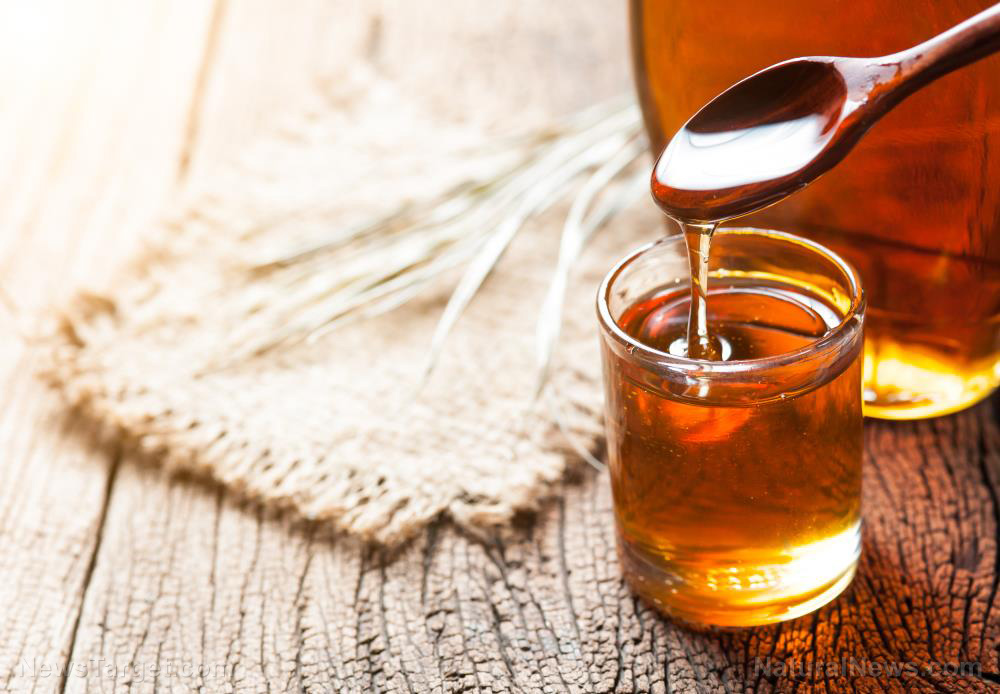
Advertisement
Honey is a popular superfood, but if you want to try other natural sweeteners, how about manuka honey? Manuka honey offers several health benefits, such as promoting skin health and protecting against infections.
What is manuka honey?
Manuka honey is harvested almost exclusively from New Zealand. It’s produced by bees that pollinate the flowers of Leptospermum scoparium, commonly known as the Manuka bush.
Manuka honey’s antibacterial properties set it apart from traditional honey. It contains an active ingredient called methylglyoxal (MG) that is believed to be responsible for these antibacterial effects.
Other kinds of honey contain insignificant amounts of methylglyoxal (MG). But because of the makeup of the manuka flower, honey produced from its nectar contains high MG levels. This means manuka honey has more potent antibacterial properties than other types of honey.
Because MG’s effects are so significant, researchers developed a standardized system known as Unique Manuka Factor (UMF) to measure the medicinal strength of each batch of manuka honey. UMF ratings of 10+ and higher yield the greatest benefits.
Reasons to try manuka honey
Manuka honey isn’t just a natural sweetener. Studies suggest that the superfood can help boost your health and promote healing.
It can help fight infections
Researchers are eyeing manuka honey as a natural solution to drug-resistant bacteria.
In one study, scientists in Australia and New Zealand used four types of honey, including manuka, on common bacteria like staphylococcus and E. coli. Results showed that manuka was the most effective in slowing and reducing bacterial infections.
It’s a natural remedy for sore throat
Adding a teaspoon of honey to your tea can help soothe a sore throat.
But if you use manuka honey, which has more potent antibacterial properties, it may help relieve pain caused by the condition and eliminate the bacteria that caused your sore throat.
It can promote wound healing
Honey is sometimes used to treat boils, sores, wounds and burns. In fact, the Food and Drug Administration (FDA) approved manuka honey as an alternative for wound treatment in 2007.
It might sound like a strange and messy way to treat wounds, but honey has antibacterial and antioxidant properties. It can also help maintain a moist wound environment and protective barrier that prevents microbial infections.
Research has shown that manuka honey can help speed up the healing process of minor cuts and scrapes. According to data from a preliminary study, when applied with other preparation materials, manuka honey helps activate and accelerate skin cells’ ability to regenerate.
In another two-week study, researchers looked into the effects of applying a manuka honey dressing on 40 participants with non-healing wounds. Findings revealed that a whopping 88 percent of the wounds decreased in size. Manuka honey also helped create an acidic wound environment, which is great for wound healing.
Another Saudi Arabian study showed that manuka honey wound dressings, when used together with conventional wound treatment, “healed diabetic ulcers more effectively than conventional treatment alone.”
Continued research will help determine the uses of manuka honey in wound healing, but if you’re hurt and have no access to a first aid kit, try dabbing a bit of manuka honey to make your wound heal faster.
It can improve skin health
If you’ve been sunbathing too long or you simply want to rejuvenate your skin, manuka honey can help.
Professor Peter Molan, director of The Honey Research Unit at the University of Waikato in New Zealand, said that manuka honey can help treat some symptoms of eczema and sunburn when applied to irritated areas. The honey helps “stimulate the growth of damaged skin tissue, aids in increasing the production of collagen and releases bacteria.”
Manuka honey isn’t just good for teas or desserts. Since the superfood has amazing moisturizing properties, it’s often used to make lip balms and skincare products.
You can even try using a manuka honey face mask for healthier skin or as emergency relief from unexpected dryness.
Manuka honey is also a potential remedy for acne, which is often caused by hormonal changes, a poor diet, stress or bacterial growth in clogged pores.
Some skincare products combine manuka honey with a low-pH product to fight acne. It can also help keep your skin free of bacteria, which could hasten the acne healing process.
Since manuka honey has anti-inflammatory properties, it can also help minimize inflammation associated with acne.
Manuka honey safety considerations
Like other superfoods, manuka honey is considered generally safe to consume.
However, some people should consult a doctor before taking it.
- According to the American Academy of Pediatrics, you shouldn’t give honey to babies less than a year old because of the risk of infant botulism, a type of foodborne illness.
- If you have diabetes, use manuka honey in moderation. All types of honey are high in natural sugar and taking too much manuka honey may affect your blood sugar levels.
- If you are allergic to honey or bees, you might have an allergic reaction after ingesting or applying manuka honey topically.
Things to remember when buying manuka honey
Manuka honey is a popular superfood, but you need to check products before buying. Some brands may sell products that don’t always deliver on the health benefits they endorse.
To prevent this, the New Zealand government enforced manuka honey labeling requirements for export in 2018. According to the new regulations, all manuka honey will be tested for four chemical markers and one DNA marker to ensure purity.
When looking for manuka honey, the only authentic products are those that have been independently tested and rated and certified by the UMF Honey Association of New Zealand.
Use manuka honey to treat a sore throat or promote faster wound healing. You can also use manuka honey as a healthier alternative to other sweeteners.
Sources:
Advertisements







